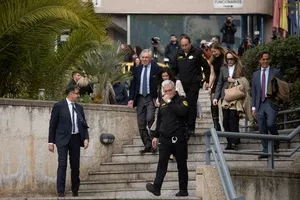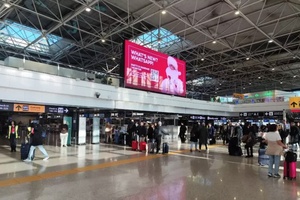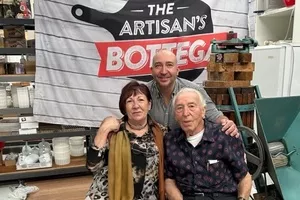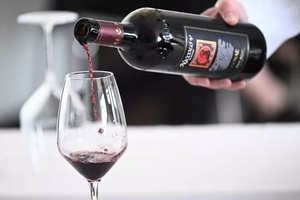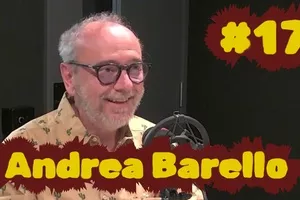For some time, the Mackay and District Italian Association Inc. had been asking Robinson to collaborate with them on a project for their annual Mackay Italian Street Party, the third of which was held on May 18 this year.
Until now, Robinson had been strapped for time and support, but this year, she said yes and applied for funding from the local Regional Arts Development Fund.
She was successful.
Robinson is renowned for her large-scale projections and installations, film, documentations, and experiments with surfaces to project onto, including water and smoke.
Excited for the lively multicultural event, Robinson began planning, and decided to aim for a multimedia project that was historical, but with a strong storytelling element.
This was the birth of Robinson’s video-work, Casa, in which she interviews and documents the migration stories of 11 local Italian and Maltese residents.
“The first guy [I spoke to], his grandfather moved over, and he went in with a group of people to buy a farm and eventually worked so hard he bought them out,” Robinson recounted.
“It wasn’t until 10 years later that he could actually bring his wife and children over.
“When he left Italy, the kids were around two and three, and when they came over they were teenagers!
“His wife had black hair when he left and when he saw her again, she had grey hair.”
In another tale, a man from Malta described the amazing change from the rocky lands of his home, to the rich open soils of Mackay, saying “it was the right climate to make money out of sugarcane”.
Indeed, many migrants did just that, with the era of the sugar cane-cutter in Mackay lasting from Giovanni Barbieri’s first arrival in 1860, up until around 1972.
That same Maltese migrant was said to be a “gun cane-cutter” who would cut two sugar cane farms one after the other in quick succession.
He later went on to buy caravan parks and businesses and do very well for himself.
Robinson said that in the stories she heard, the migrants were pretty clever at buying their own businesses or buying each other out, and sometimes started their own farms after experiencing racism or prejudice at other places.
The migrants’ struggles with acceptance therefore contributed to their later self-made fortunes.
Some of the stories Robinson collected were from more recent history, and included a family who moved to Mackay in 2013 as a result of economic troubles in Italy.
That couple learned to speak English and have since found work in Mackay, and had a baby.
In another tale, a couple met in Sydney and fell in love and decided to move up north.
“Most of the stories that I found were based on love and creating families, caring for the families they already had, or making a better life for them in a better country, based on economic reasons,” Robinson confirmed.
“The most beautiful thing when I was speaking to people on the phone was hearing the accents.
“I don’t hear a lot of Italian people in the streets or when I walk around, so it’s just lovely to have that audio in amongst it to listen to the accents as well.”
Robinson said that she would like to do another project involving the Italian community, and draw out the vivid details of some of the stories.
“I could listen to some of them for ages,” she added.
“They were just very entertaining.
“I would like to delve more into the storytellers among the group.”
Donna Maree Robinson’s film Casa was screened on May 18 at the Mackay Italian Street Party.
See a preview of the work online.



















